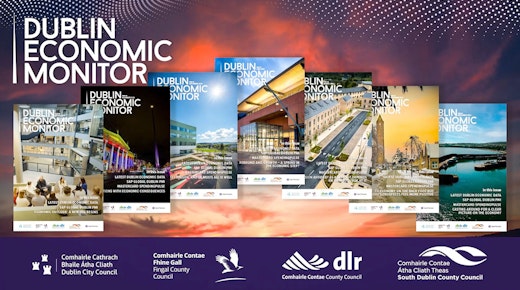2020 was a Challenging Year
There is strong evidence of the trading difficulties tourism operators experienced last year. Owing to their much larger scale and significant capital costs, we have much better data from the hotels sector, but the challenges are the same for all accommodation formats and across tourism.
Nationally, hotel occupancy fell from 78% in 2019 to 33% in 2020. While the fall in average daily rates was less dramatic at 20%, the combined effect of reduced occupancy and room rates meant that average revenue per available room was down two-thirds overall.
| Hotel Performance Results for Dublin | 2019 | 2020 | YoY Δ |
| Occupancy | 82% | 25% | -70% |
| Average Daily Rate | €142.20 | €103.50 | -27% |
| Revenue per Available Room | €116.70 | €25.50 | -78% |
The impact in Dublin has been greater than the national average. Pre-Covid-19, the city attracted more overseas tourists and much of its domestic business was event based. Average revenue per available room was down 78% last year.
2021 More Challenging Than Expected for Tourism
2021 has not developed as expected for tourism. Actions taken to contain Covid-19 and mitigate the risks to public health continue to affect the tourism industry more than any other economic sector. For example:
- Tourism relies on face-to-face interactions. The experience cannot shift to virtual service delivery.
- Travelling to destinations is an inherent part of tourism. And travel restrictions choke off tourism demand.
- Highly interlinked business eco-system. Tourism services are interdependent and a problem in one sub-sector has knock-on effects on others. The delayed reopening of indoor dining pushed back the reopening of the wider tourism economy.
- Reduced operating capacity. Of the almost 80% of tourism businesses that planned to trade over the summer the majority are running at limited capacity, with 37% of accommodation providers and 61% of non-accommodation businesses working at less than 50% capacity.
- Staffing challenges: Tourism’s delayed reopening means that businesses still find it difficult to staff-up so as to meet demand.
Domestic tourism has restarted, and it is helping to mitigate the impact on jobs and businesses in some destinations. However, a real recovery will only be possible when international tourism returns because Ireland’s tourism sector is, compared with most other EU member states, highly dependent on overseas travel. They account for some 70% of spending in Ireland by tourists. Since the pandemic there has been a complete collapse in overseas travel to Ireland. For example, over the first six months of 2021 overseas arrivals were down 95% on 2019 levels.
But Tourism Always Recovers
Looking at the bigger picture, tourism always recovers stronger and more resilient from each shock. As the long-term view shows, the upward trend is robust, sustained and persistent.
Overseas Tourism to Ireland 1960-2020
Demand will return once peoples’ freedom to travel returns. The Irish Tourist Industry Confederation’s outlook is that by 2025 overseas tourists will return to pre-pandemic levels and domestic tourism is expected to be well ahead of pre-pandemic levels by then.
STR, a global leader in accommodation performance monitoring and reporting, have produced forecasts for Dublin taking into account new properties coming on stream, estimating:
- Over the next three years, occupancy is expected to expand at an average annual rate of 40.9%, while average daily rate is expected to expand at an average annual rate of 8.2%.
- By 2023, average daily rate will be close to 2019 levels and room occupancy will be close to 70%.
- By 2025, the results will be better again, with occupancy at 76% and rates at over €140.
The strong pipeline of new tourist accommodation stock, especially hotels, that has come on stream in recent years, and with more to come, will be put to good use once public health conditions allow.





